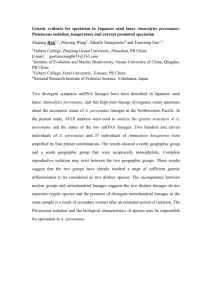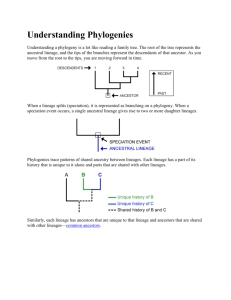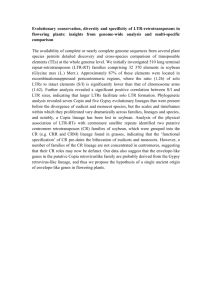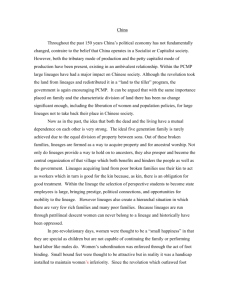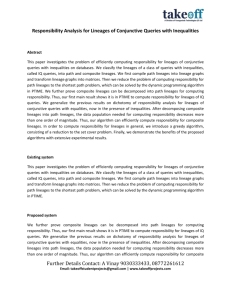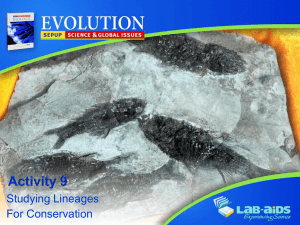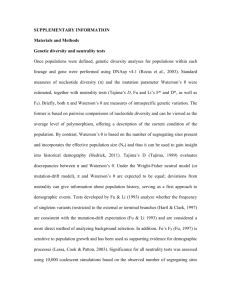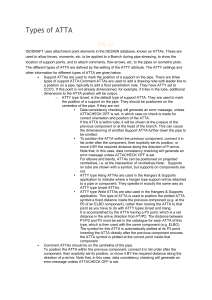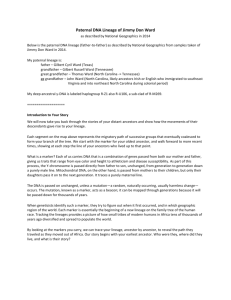aqui ()
advertisement
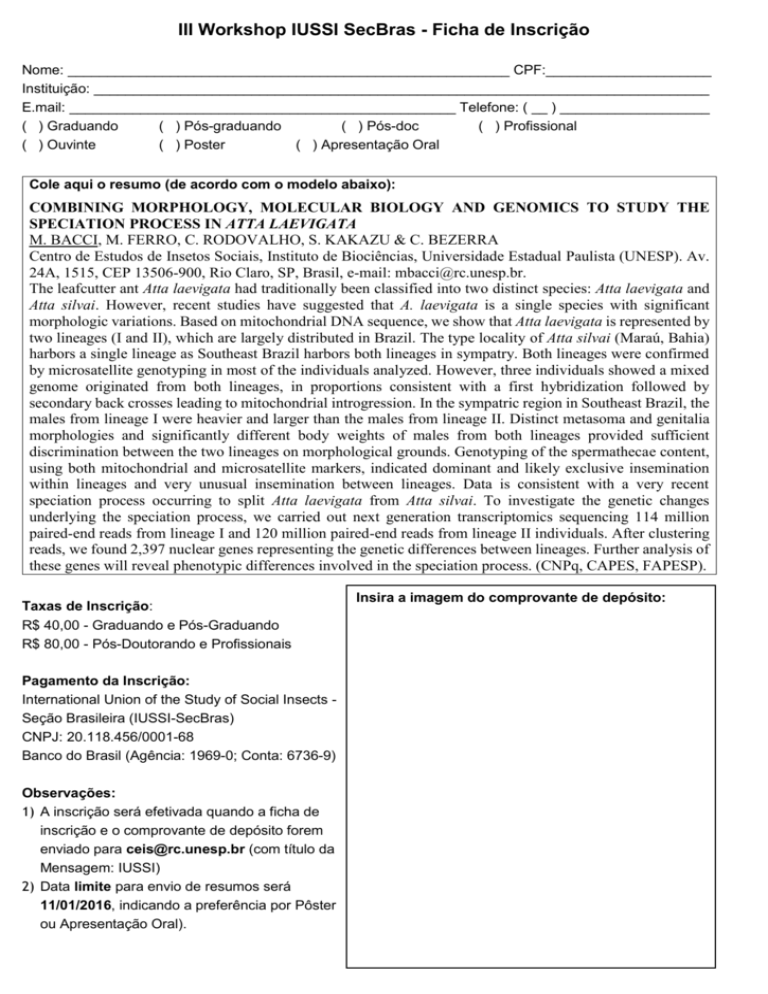
III Workshop IUSSI SecBras - Ficha de Inscrição Nome: ________________________________________________________ CPF:_____________________ Instituição: ______________________________________________________________________________ E.mail: _________________________________________________ Telefone: ( __ ) ___________________ ( ) Graduando ( ) Pós-graduando ( ) Pós-doc ( ) Profissional ( ) Ouvinte ( ) Poster ( ) Apresentação Oral Cole aqui o resumo (de acordo com o modelo abaixo): COMBINING MORPHOLOGY, MOLECULAR BIOLOGY AND GENOMICS TO STUDY THE SPECIATION PROCESS IN ATTA LAEVIGATA M. BACCI, M. FERRO, C. RODOVALHO, S. KAKAZU & C. BEZERRA Centro de Estudos de Insetos Sociais, Instituto de Biociências, Universidade Estadual Paulista (UNESP). Av. 24A, 1515, CEP 13506-900, Rio Claro, SP, Brasil, e-mail: mbacci@rc.unesp.br. The leafcutter ant Atta laevigata had traditionally been classified into two distinct species: Atta laevigata and Atta silvai. However, recent studies have suggested that A. laevigata is a single species with significant morphologic variations. Based on mitochondrial DNA sequence, we show that Atta laevigata is represented by two lineages (I and II), which are largely distributed in Brazil. The type locality of Atta silvai (Maraú, Bahia) harbors a single lineage as Southeast Brazil harbors both lineages in sympatry. Both lineages were confirmed by microsatellite genotyping in most of the individuals analyzed. However, three individuals showed a mixed genome originated from both lineages, in proportions consistent with a first hybridization followed by secondary back crosses leading to mitochondrial introgression. In the sympatric region in Southeast Brazil, the males from lineage I were heavier and larger than the males from lineage II. Distinct metasoma and genitalia morphologies and significantly different body weights of males from both lineages provided sufficient discrimination between the two lineages on morphological grounds. Genotyping of the spermathecae content, using both mitochondrial and microsatellite markers, indicated dominant and likely exclusive insemination within lineages and very unusual insemination between lineages. Data is consistent with a very recent speciation process occurring to split Atta laevigata from Atta silvai. To investigate the genetic changes underlying the speciation process, we carried out next generation transcriptomics sequencing 114 million paired-end reads from lineage I and 120 million paired-end reads from lineage II individuals. After clustering reads, we found 2,397 nuclear genes representing the genetic differences between lineages. Further analysis of these genes will reveal phenotypic differences involved in the speciation process. (CNPq, CAPES, FAPESP). Taxas de Inscrição: R$ 40,00 - Graduando e Pós-Graduando R$ 80,00 - Pós-Doutorando e Profissionais Pagamento da Inscrição: International Union of the Study of Social Insects Seção Brasileira (IUSSI-SecBras) CNPJ: 20.118.456/0001-68 Banco do Brasil (Agência: 1969-0; Conta: 6736-9) Observações: 1) A inscrição será efetivada quando a ficha de inscrição e o comprovante de depósito forem enviado para ceis@rc.unesp.br (com título da Mensagem: IUSSI) 2) Data limite para envio de resumos será 11/01/2016, indicando a preferência por Pôster ou Apresentação Oral). Insira a imagem do comprovante de depósito:
